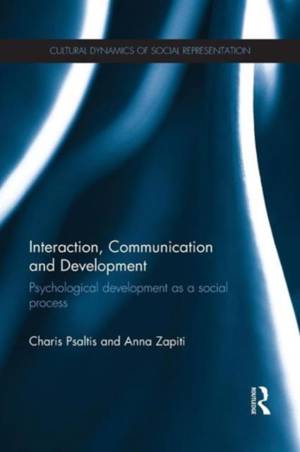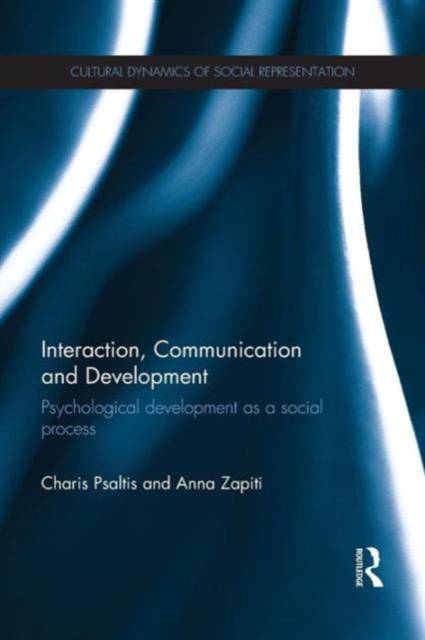
- Retrait gratuit dans votre magasin Club
- 7.000.000 titres dans notre catalogue
- Payer en toute sécurité
- Toujours un magasin près de chez vous
- Retrait gratuit dans votre magasin Club
- 7.000.000 titres dans notre catalogue
- Payer en toute sécurité
- Toujours un magasin près de chez vous
Interaction, Communication and Development
Psychological Development as a Social Process
Charis Psaltis, Anna ZapitiDescription
For decades there has been considerable interest in the ways that interactions between children can provide a beneficial context for the study of cognitive and social development. In this book Psaltis and Zapiti use both theoretical and empirical research to build on the perspectives of Piaget, Vygotsky, Moscovici, and others including the legacy of Gerard Duveen, to offer a state of the art account of research on the themes of social interaction and cognitive development.
Interaction Communication and Development discusses the significance of social identities for social interaction and cognitive development. The empirical set of studies presented and discussed focus on patterns of communication between children as they work together to solve problems. Communications are examined in detail with a focus on:
- Socio-cognitive conflict, conversational moves and conversation types
- The way the different forms of the interactions relate to different sources of asymmetry in the classroom
- The way social representations and social identities of gender are negotiated in the interaction
This book provides an important account of how children develop through different kinds of social interactions. It will have considerable appeal for researchers in the fields of developmental psychology, socio-cultural psychology, social representations theory and education who wish to gain a deeper understanding of development and its relation to socio-cultural processes.
Spécifications
Parties prenantes
- Auteur(s) :
- Editeur:
Contenu
- Nombre de pages :
- 241
- Langue:
- Anglais
- Collection :
Caractéristiques
- EAN:
- 9781138669840
- Date de parution :
- 03-03-16
- Format:
- Livre broché
- Format numérique:
- Trade paperback (VS)
- Dimensions :
- 156 mm x 234 mm
- Poids :
- 317 g







